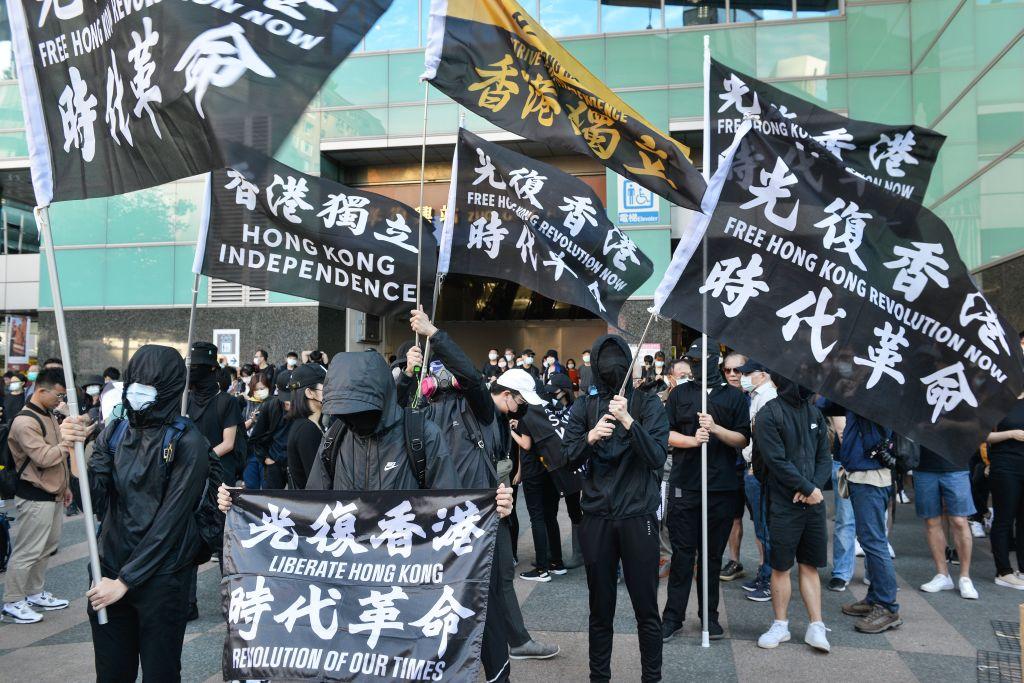TAIPEI, Taiwan—About 3,000 people took part in a march in downtown Taipei on Oct. 25 afternoon, voicing support for 12 Hongkongers who have been held by mainland Chinese authorities for over 2 months.
Among those taking part were a Hong Kong couple surnamed Wong and their two sons.




